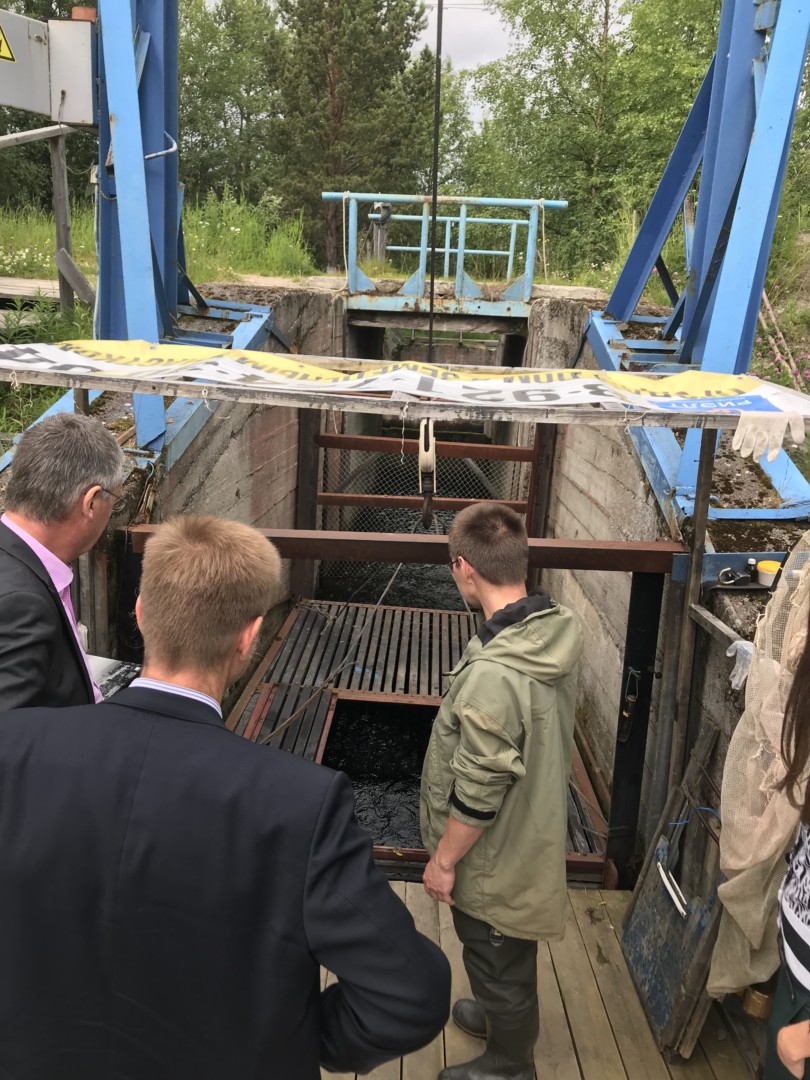The Delegation of the European Commission to Russia paid a visit to Murmansk on 26 July. Ambassador Markus Ederer and Head of Science and Technology section Richard Burger were representing the Delegation.
In Murmansk, the Delegation had meetings with the Kolarctic projects’ representatives who introduced their ongoing projects. “Conserving our Atlantic salmon as a sustainable resource for people in the North” and “Kolarctic Food Refining” signed Grant Contracts with the Managing Authority and launched their activities in 2018. These projects presented some of their mid-term outputs to the delegation.
Also, some results of the previous programme Kolarctic ENPI CBC 2007-2013 were presented to the delegation. These were: “Russian-Swedish Council for SME development”, “Trilateral cooperation on our common resource: the Atlantic salmon in the Barents region”, “CETIA project” (Coastal Environment, Technology and Innovation in the Arctic)
The “Kolarctic Food Refining” aims at better development of handling and refining of reindeer meat and forest berries AND to green light the Russian companies’ food products to the EU market. Project manager Ari Huhtala gave a presentation filled with photos taken from the workshops tailored to the project partners from Finland and Russia. The project displayed samples of a number of food products they have been working on made of reindeer meat and wild berries.
The ongoing project “Conserving our Atlantic salmon as a sustainable resource for people in the North” contributes to documenting and examining the effects of the new sea salmon fishery regulations, and studying the growing threats towards Atlantic salmon populations: climate change, growing cage culture industry and emerging diseases.
The project partner organization “Knipovich Polar Research Institute of Marine Fisheries and Oceanography” based in Murmansk showed the Delegation their facilities on the Tuloma river outside the city where the scientific studies are undertaken. The on-spot overview offered a good visualization of the project implementation process.
The Ambassador appreciated the projects work done and noticed the necessity of wider promotion of the projects’ goals and outcomes in the media that could help a bigger audience to get advantage from the Kolarctic Programme.
The project partners from all projects pointed out a positive synergy of the cross-border cooperation in the field of meaningful and practice-oriented achievements.

